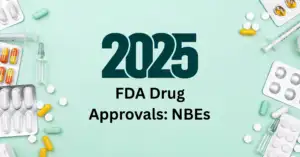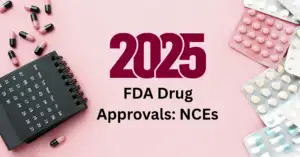Biosimilars are generic copies of the innovator biological products. Biological products are produced from a variety of sources. These include yeasts, bacteria, and animal cells etc. that generate complex biological chemicals from live organisms that have potential use as medicines. Biological products can be produced from variety of biological matter and can have different inventive manufacturing and purification processes to deliver a similar biologic product. Therefore, Biosimilars are not precise clones of the original biologic medication, as opposed to generic versions of standard pharmaceuticals, which are identical copies of their brand-name counterparts. Currently, treatments for illnesses like cancer, diabetes, Crohn’s disease, colitis, rheumatoid arthritis, psoriasis, and more have received FDA approval for biosimilar drugs.
Biologic medications are also used to treat a variety of ailments such as cancer, autoimmune disorders, and chronic inflammatory problems. Few biological products are manufactured with the use of recombinant DNA technology or other biotechnological procedures. It is challenging to manufacture exact duplicates of biologics due to their complex structure and manufacturing method. Manufacturing biologics tends to be more challenging than producing traditional medicines. A biologic that is largely similar to and does not differ clinically from another biologic that has already received FDA approval is known as the reference product or original biologic.
Biosimilars are designed to be substantially similar in terms of quality, safety, and efficacy. Manufacturers of biosimilars carry out comprehensive comparability studies to show that their product is substantially similar to the reference biologic medication in order to obtain approval. These investigations assess the molecular structure, pharmacokinetics, pharmacodynamics, and clinical efficacy of the biosimilars, among other things. To compare the safety and efficacy of the biosimilars to the reference medicine, clinical trials involving actual patients are also carried out. Apart from improved patient access to cheap treatment alternatives, biosimilars may also result in cost savings for both patients and healthcare systems.
It’s crucial to remember that while biosimilars and the reference biologic are very similar, they are not the same. Between a biosimilar and its reference medicine, there may be minute discrepancies in the clinical response or immunogenicity (the ability to elicit an immune response) due to variances in manufacturing procedures or minute variations in molecular structure. Also because of their reduced development process, biosimilars may be less expensive than biologics.
To guarantee the safety and efficacy of biosimilars, regulatory organisations like the European Medicines Agency (EMA) and the U.S. Food and Drug Administration (FDA) have created standards for their approval and usage. These recommendations include a range of biosimilar development topics, including the necessity of comparative analytical investigations, nonclinical research, and clinical trials.
Biologics have helped to improve patient outcomes in cancer, autoimmune disorders, and a variety of other ailments. With the increased launch of new biosimilars, clinicians will have the chance to provide patients with similar quality to the innovator biological product at a potentially lower-cost due to availability of biosimilar products.





